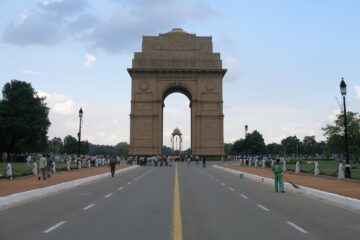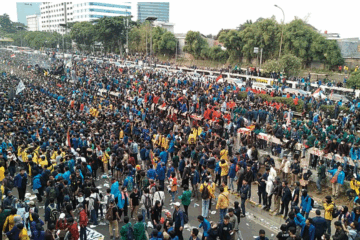The Uyghur community in Xinjiang, China has been subject to horrific human rights violations. Forced sterilization, torture, sexual abuse, and cultural genocide are a handful of the crimes this minority has suffered over the past years and continues to suffer today. An article by the BBC from June 1st states that “China has detained more than one million Uyghurs against their will over the past few years in a large network of what the state calls “re-education camps”, and sentenced hundreds of thousands to prison terms.”
Yasmin Serhan, from The Atlantic, elaborates on how “the targeting of Uyghurs isn’t limited to the camps,” and rather, since 2016, there have been “dozens of graveyards and religious sites that have been destroyed.” Furthermore, the Uyghur language has been banned in Xinjiang schools, and the practice of Islam has been considered a sign of extremism. This is a double-sided genocide. Not only are the women being sterilized – imposing a population control device – but Uyghur culture is in and of itself being chipped away through this legislation.
The Uyghurs are a group of Turkic descent-based individuals within the Xinjiang area. They are the “largest producer of grapes in China” as well as “large quantities of different types of crops such as rice, corn, grain, and cotton.” They have a deep appreciation for song and dance and are skilled craftspeople. Their main diet includes flour, corn and rice. The traditional male clothing is a cotton robe with two coloured stripes, and the women’s is a dress layered on top of a skirt with a black velvet vest on top, with both wearing boots. They have their own marriage customs, rites of passage, and traditional holidays. Their culture, like any other, should be valued and protected.
These ethnic cleansing crimes date back to May 2014 when the Chinese government implemented a Strike Hard Campaign against Violent Terrorism in the Xinjiang Uyghur Autonomous Region (XUAR), according to Human Rights Watch. As this is the only region in China with a majority population of Muslims, it is evident that the Chinese government’s supposed ‘reformation’ policies are deeply rooted in Islamophobic sentiment. The human rights violations alone are beyond worthy of public activism, but the deeply rooted religious persecution existing on such a wide scale in 2021, is, to say the least, unsettling. The Uyghurs’ plight is relevant to any member of the world populace that values the right of religious expression and cultural practice.
According to the BBC, however, all human rights violation allegations regarding Xinjiang have been denied by China. The state claimed in 2019 that it had released everyone from the re-education camp system, though there is testimony that suggests many Uyghur Muslims are still detained there as well as in formal prisons. One google search would quickly prove the statements from the Chinese government otherwise, but how can one go about holding the state accountable when victims can only expect the imposition of non-binding and lukewarm opinions of treaty bodies rather than binding judgement from the UN, and the International Human Rights community lacks the necessary means to take adequate measures against violations? Some internment camp survivors have spoken out against the abuse they suffered, and others have taken to the streets.
The hellish conditions of the cultural genocide within Xinjiang are playing out like the facets of a dystopian novel, and there isn’t enough being done to stop it. The Uyghur Human Rights Project (UHRP) has outlined ways to take action in support of this cause. Their recommendations consist of a variety of measures, beginning with contacting congress, parliament, or whatever governmental institution is in a position to enforce measures to help. They urge the public to stop forced labour. This can be done through boycotting fashion brands that are supplied by labour in Xinxiang and spreading this message on social media. There is also a petition to free Uyghur Muslims from forced labour that can be signed to help the cause. Another way to help would be by donating to the UHRP. They provide emergency humanitarian relief to Uyghurs as well as work on documenting the human rights struggle, which funds would help sustain. To take on a more active role, there are also volunteering initiatives with the UHRP. Make sure to subscribe to their mailing list, follow their social media, and attend their events to stay informed.
There has been consistent evidence of the human rights abuses suffered by the Uyghur population in China, despite opposing claims. Witness accounts from Uyghur survivors, humanitarian organizations’ call to action, as well as present social media campaigns are all part of an ongoing struggle to address this. These efforts, led by internment camp survivors as well as various activists and organizations around the world, have called upon others to stay informed about this issue and join the collective work to ensure the protection of Uyghurs’ basic human rights
Feature Image by AlJazeera




